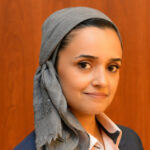About the Program
The fellowship program is two years in duration. One fellow will be accepted every two years. The usual start date is July 1. Upon completion of the fellowship program, graduates will receive a fellowship certification from McMaster University.
Evaluations will occur on a quarterly basis and are based on the objectives of training for the fellowship program.
There is no salary for this fellowship. Fellows will need to register for a billing number from the Ontario Ministry of Health and Long Term Care and will be able to bill operating room assistant fees and any locum call shifts.
For information on electives in urogynecology and pelvic reconstructive surgery, please visit our electives page.
Objectives
Fellows will receive advanced training in the clinical care of patients with disorders of the pelvic floor. The scope of practice in female pelvic floor disorders ranges from urinary incontinence, pelvic organ prolapse, infectious and inflammatory diseases of the pelvis, fistula, diverticula, voiding and defecation dysfunction, painful bladder syndromes, neurological pelvic floor dysfunction and lower urinary tract function in pregnancy. The fellow will develop expertise in diagnostic evaluation, conservative and medical management, and surgical approaches to these issues. An emphasis is placed on transvaginal and laparoscopic reconstructive procedures, as well as minimally invasive surgical techniques.
Fellows will be engaged in academic and community clinics, outpatient procedures, surgery, teaching residents didactically and surgically, presenting at rounds and journal clubs, anatomy and simulation lab teaching, and with own research. Graduates will be leaders in the provision of excellence in clinical care, research within the speciality and the education of gynecologic trainees.
Schedule
The schedule will be divided into 80% clinical time and 20% research or teaching time. Time will be divided between preceptors at McMaster University Medical Centre in Hamilton and Halton Health Care in Oakville. Ability to travel between sites is required.
Rotations in minimally invasive surgery, urology, colorectal surgery, gastroenterology and other urogynecology training centers can be arranged, as well as arranging to spend time with community pelvic floor physiotherapists. Elective opportunities will be available during each year of fellowship. There are no fellowship on-call responsibilities, although fellows will be able to provide locum OB/Gyn on call coverage as long as it does not interfere with fellowship responsibilities.
Research
The program encourages and supports research. Fellows are expected to be academically productive and are encouraged to submit one publishable paper by the end of their training period. Fellows will determine an academic focus of teaching or research in their fellowship.
Application Process
For further information on how to apply, required documentation and to submit your application, please use the Fellowship Application Portal. Reference letters are to be addressed to the program director and emailed directly to the fellowship program coordinator. Under the reference section of the application, please upload a document listing your referees and their contact information. If you are currently a final year resident or have completed residency less than five years ago, one referee must be your residency program director. Inquiries regarding the program should be emailed to the fellowship program coordinator.
Certification in obstetrics and gynecology by the Royal College of Physicians and Surgeons of Canada, or equivalent, is required by July 1 of the year of entry into fellowship.
Applicants must be eligible to obtain an independent practice license with the College of Physicians and Surgeons of Ontario by the start of fellowship.
Application Deadline
Applications are currently being accepted for the 2025/2026 academic year. Deadline date is June 1, 2024.
Program Director
Information Box Group

Ola Malabarey
MBBS, FRCSC
Associate Professor, Division Lead & Fellowship Director, Female Pelvic Medicine and Reconstructive Surgery
Urogynecology
